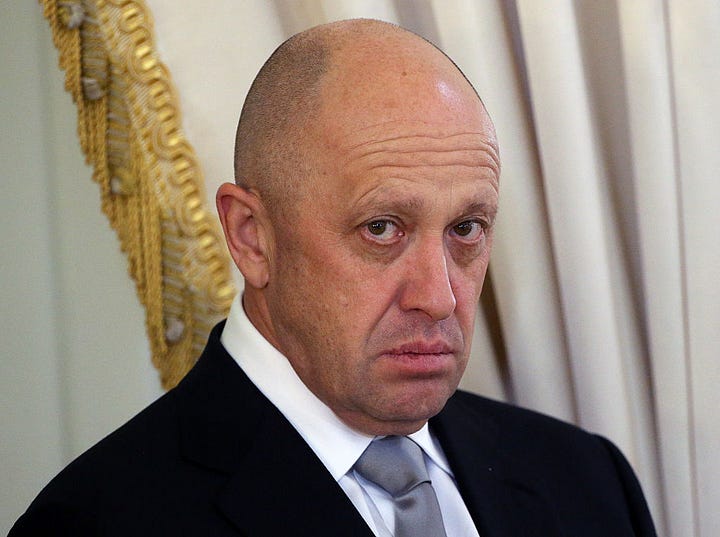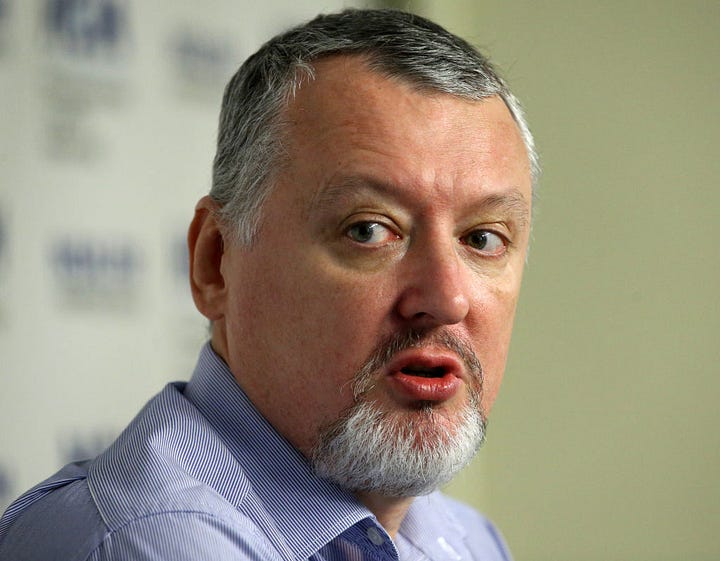

Boris Kagarlitsky
Translated by Dan Erdman
While stubborn battles for dominance over each village continue to turn the various fronts of the Ukrainian war into a new Verdun, an increasingly fierce polemic between patriots flares up in the rear. On the one hand, Yevgeny Prigozhin, owner of a private military company The Wagner Group, who was supported by propagandists, deputies, and even the former head of the state space travel corporation Roscosmos, Dmitry Rogozin, who was later dismissed for the collapse that agency’s ability to function. On the other hand, the former Minister of Defense of the Donetsk People’s Republic, Igor Strelkov (aka Girkin), and the veterans of the 2014 Donbass war have also united around him. Strelkov of course is on the outs for constantly criticizing the Russian military and political leadership, particularly since he does not limit himself to talking about the mistakes of the generals, but even attacks Putin himself.
In response to these speeches by Strelkov came Prigozhin’s public proposal that he enlist as a mercenary in the Wagner Group and go to the front. To the latter’s chagrin, the former military leader of the DPR said that he was ready to agree, after having settled on proper conditions. This decision was extremely risky; Prigozhin and his entourage could well have arranged for a quick and heroic death for their star recruit on his arrival at the front. However, judging by the events that followed, the plan seems to have been somewhat different: the inviters hoped that Strelkov would refuse, after which they could call him a coward and a deserter, launching a further campaign to discredit him.
Having clearly received prior consent from on high, Prigozhin responded to Strelkov’s answer with a stream of obscene abuse and threats, directly promising to deal with him as soon as he was under his thumb. Unsurprisingly, Strelkov replied that he would no longer be joining the Wagner Group. After that, the organizers of the provocation returned to the original scenario, accusing the recent hero of Donbass of betrayal, desertion and cowardice. Strelkov’s supporters did not hold their tongues, attacking Prigozhin and Rogozin with accusations and threats.
The left-wing Telegram channel Nevoynya sees these events as a symptom of a serious political crisis: “Russian ultra-rightists are at a fork in the road. If they can combine the ‘fascism from above’ represented by Prigozhin with the reactionary but real movement from below, of which Strelkov appears as the protagonist, there will be prospects for radical nationalist mobilization. She can mobilize the country and try to prevent a catastrophe at the front and in the rear.
But the ultra-right did not play along. Strelkov’s ‘dark democracy’ (to use a term from Lenin, himself a sharp analyst of his era’s reactionary Black Hundreds movement) turned out to be unacceptable for Prigozhin and his masters. They are not ready to put up with any expansion of the social base or anything smacking of populism. Because this ‘dark democracy,’ for all its imperial and nationalist nonsense, and for all the sincere right-wing love for discipline and unity of command, implies a redistribution of power and resources. Strelkov, striving for his imperial ideals, will demand, not in words but in deeds, the mobilization of the resources of the ruling elite, the elimination of its privileges, and the axing of the most corrupt and incompetent functionaries. And the current administration, its bed feathered by the private military companies, houses many of these very thieving billionaires. And this war is not for the ghostly mirages of the empire, but for the perpetuation of all this bloody slush.”
Some commentators, especially those associated with the liberal opposition, interpret what is happening differently, believing that by inviting Strelkov to the Wagner Group, Prigozhin has exceeded his authority and failed to coordinate his stunt invitation with the Presidential Administration, which has since ordered him to back down. The left-wing blogger Maxim Shevchenko is of this same opinion.
“Prigozhin invited Strelkov to fight, and then, having invited him, realized that he was happy to do so without the sanction of higher structures. As a result, these structures then turned Strelkov into a public laughing stock. The insults and poison hurled at him came from a united front, one so organized that even Rogozhin himself couldn’t resist sending some infective Strelkov’s way.
“Prigozhin’s invitation gave Strelkov a quite tolerable chance to escape the role of the semi-sane armchair critic, to which he had been assigned by political administrators. But it was unauthorized. After Prigozhin was corrected, he burst into such abuse against Strelkov that there could be no talk of any command position - either with Wagner or the regular army - not even a slot as a platoon commander.
“Anyway, it is difficult to imagine Strelkov as a regular grunt in the Wagner Group. In the end, Strelkov himself is to blame; much like the cadet Bigler from Yaroslav Gashek’s book The Adventures of the Good Soldier Schweik, he rode and rode to join the great battles, talked about them endlessly in his anticipation, but somehow, ridiculously and clumsily, could not find them and returned.
“Naturally, no one is going to allow Strelkov and similar ‘people with ideas’ to get close to both real weapons and the opportunity to rally ideologically-minded combat units around themselves. ”
The authorities finally decided to reject the ideological nationalists. “Strelkov,” Shevchenko continues, “will be humiliated and publicly brought low, chiefly by his own ardor and egocentrism. They will turn him into a laughing stock. And not a single military registration bureau or enlistment office will accept him even as an ordinary fighter. Indeed, numerous propagandists, officials and deputies immediately joined the campaign to persecute Strelkov. The most striking statement of this kind belongs to Sergei Mironov, head of the Just Russia faction in the State Duma. Mironov said that, unlike the cowardly Strelkov, he joined the Wagner PMC; but, of course, he is needed on the ‘parliamentary front,’ at the moment, and will not be going to Ukraine.
“The question is how the ideological nationalists will react to this; the authorities are increasingly openly squeezing them into the opposition, while at the same time resorting to propaganda rhetoric even more aggressively xenophobic than that of the national radicals. At the very least, the patriotic internet channels now driven into opposition did not call for the mass extermination or deportation of Ukrainians, or for the use of atomic weapons against Kyiv, or for leveling Ukrainian cities to the ground, which pro-Kremlin channels call for almost daily. While Strelkov himself, romantically longing for the times of tsars and emperors while responding to the insults of Prigozhin and pro-Kremlin politicians, tried to keep within the bounds of decency, his supporters directly threatened that they were ready to respond not only with an insult for an insult, but also force upon force.
“Today’s discord between Strelkov and Prigozhin,” concludes Nevoynya, “more than any other event reveals the real mechanisms that guarantee the military defeat of the Putin regime. He is not capable of bringing about internal mobilization, even of the most reactionary. Only mercenaries and Mamluks are permitted to play the role of fascists. No one will tell the remaining millions of Russians what to kill and die for. This system is doomed. By refusing Strelkov, it puts an end to itself.”



Interesting discussion, but ultimately i’m not buying it. Putin’s disagreement with the militarists is ultimately a family squabble - A disagreement over tactics and strategy - not the regime-changing screed that you describe here.
In war, true believers fall just as easily as conscripted soldiers. Idealogues cannot win a war and may weaken a country's resolve. Just look to the West. There is nothing there worth emulating.